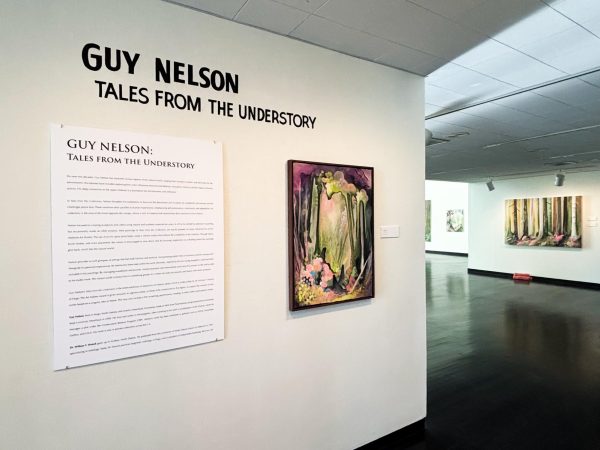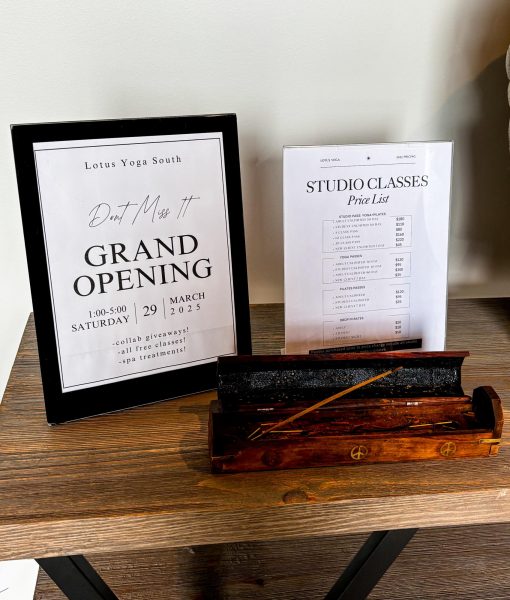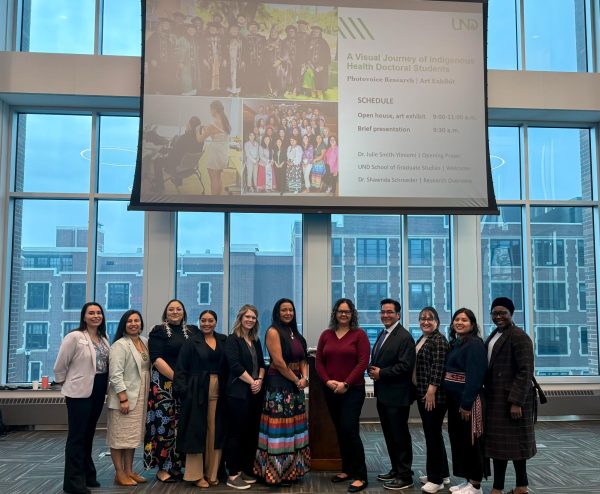International Studies hosts annual China Night
The International Studies Program at UND hosted Chinese Culture Night on Thursday from 6:30 to 9 p.m. in the Memorial Union Ballroom on campus.
Culture Night focused on the incoming of the Chinese New Year, which started on Thursday. Also known as Spring Festival in China, the Chinese New Year features a different kind of animal each year and lasts for the first 15 days of the Chinese calendar.
The year 2015 features the goat (alternatively sheep or ram), the eight sign of the 12-year cycle of animals in the Chinese zodiac. The year of the goat, along with every year features lucky numbers, flowers, colors and directions as well as unlucky numbers, colors and directions.
During the 15-day celebration, red envelopes or red packets are passed out from married couples or the elderly to unmarried juniors. The red color symbolizes good luck and is supposed to ward off evil spirits. It is also common for adults or young couples to give red packets to children.
Red packets almost always contain money, usually varying from a couple of dollars to several hundred. Per custom, the amount of money in the red packets should be of even numbers, as odd numbers are associated with cash given during funerals.
The nightt featured performances from Min Wang’s Chinese class singing Mo Li Hua, “Jasmine Flower,” a traditional Chinese folk song dating back to the 18th century, gaining popularity in China and abroad. It has been featured in the 2004 Summer Olympics in Athens and the 2008 Summer Olympics in Beijing.
There also were a few people demonstrating how to make wrappers using just flour and water. Also, a few techniques how to fold and crimp the edges of the wrapper for a decorative look, even a simple tool to fold and crimp the dough, were shown by the demonstrators.
Dumplings, or Jau gok, a traditional food served during the new year, are usually savory and filled with pork, but can be vegetarian or have a sweet filling. The shapes of the dumplings resemble the Chinese money symbolizes prosperity.
Other traditional foods served during the New Year are Buddha’s delight, an elaborate vegetarian dish, popular in Buddhist cuisine and traditionally enjoyed by Buddhist monks who are vegetarians.
There also was a meal of the traditional dumplings, a dish of fried eggs and tomatoes, an odd sounding combination, but a common Chinese dish found in Beijing. Also featured were a stir fry of beef and celery, and a sticky rice dish with vegetables.
Over 400 people attended Chinese Culture Night, making it a great success. The next Thursday Night Cultural Series is on March 5 featuring the Philippines and two more cultural nights in April will feature Germany and Japan. All will be held in the Loading Dock at the Memorial Union at 6:30 p.m.
Colin Johnson is a staff writer for The Dakota Student. He can be reached at colin.m.johnson@my.und.edu.






